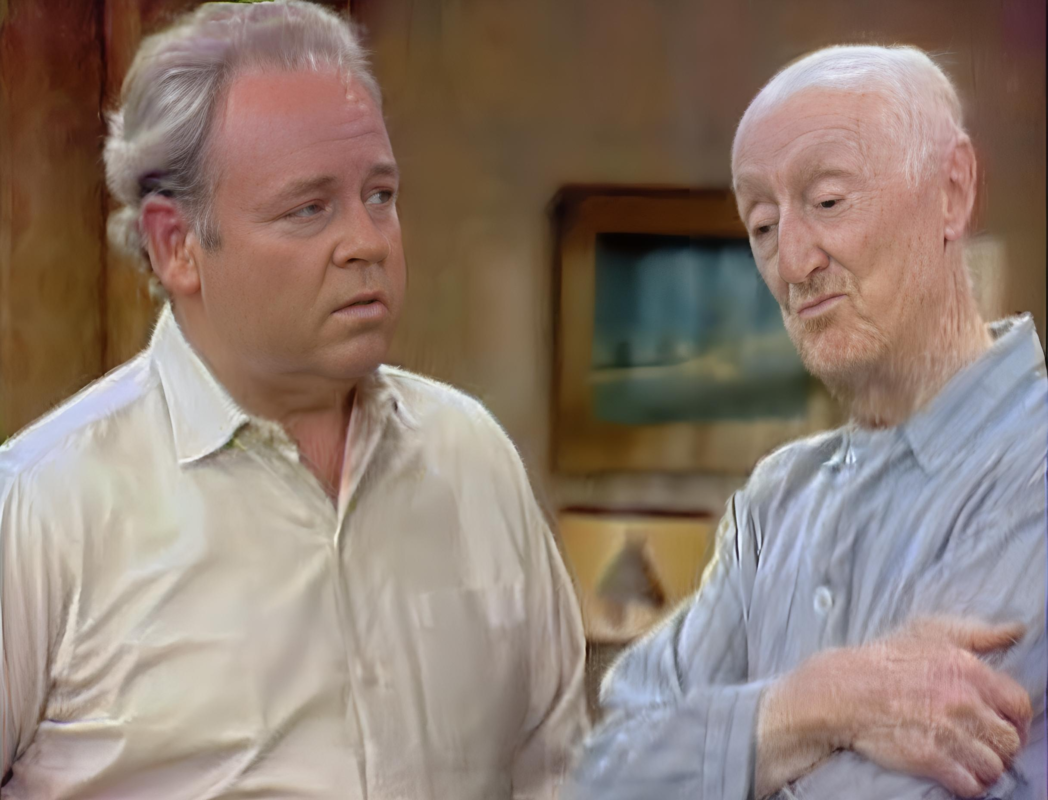
Nikki Giovanni, a celebrated poet, activist, and educator, has long been a prominent voice in the discourse on race, culture, and social justice. Her profound insights and eloquent critiques offer a unique perspective on the complexities of racial representation in media, particularly in shows like “All in the Family.”
“All in the Family,” which aired from 1971 to 1979, was groundbreaking in its approach to tackling social issues, including racism, through the lens of comedy. The show’s central character, Archie Bunker, was portrayed as a bigoted, working-class man whose prejudiced views were intended to satirize and challenge societal norms. However, Nikki Giovanni’s perspective on racial satire invites a deeper examination of whether the show succeeded in its intentions or inadvertently reinforced harmful stereotypes.
Giovanni has often emphasized the importance of authenticity and respect in the portrayal of Black experiences. Her poetry and essays highlight the need for honest representation that does not trivialize or distort the realities of racial oppression. In the context of “All in the Family,” Giovanni might critique the show’s reliance on a white protagonist to explore themes of racism, thereby sidelining the voices and experiences of Black characters.
“While ‘All in the Family’ aimed to expose the absurdity of racism, it often did so through the eyes of a white man, Archie Bunker,” Giovanni could argue. “This approach risks centering whiteness and marginalizing the very people whose stories need to be told with depth and respect.”
Moreover, Giovanni’s work underscores the delicate balance required in using satire to address serious issues. Effective satire must be nuanced and thoughtful, ensuring that it critiques the status quo without perpetuating the very biases it seeks to dismantle. “All in the Family” often walked a fine line, and Giovanni might contend that the show’s humor sometimes obscured the gravity of racial injustices.
“The danger with satire,” Giovanni might suggest, “is that it can easily be misinterpreted or dismissed as mere comedy. When dealing with issues as profound as racism, we must be careful not to dilute their significance with laughter.”
Giovanni’s critique would likely extend to the representation of Black characters in “All in the Family.” The show featured Black characters sporadically, often as foils to Archie’s bigotry rather than as fully realized individuals with their own narratives. This portrayal can reinforce a limited and reductive view of Black lives, contrary to Giovanni’s call for rich and varied depictions of Black humanity.
“In aiming to critique racism,” Giovanni might note, “we must ensure that Black characters are given the dignity and complexity they deserve. Reducing them to mere plot devices in a white-centered narrative does a disservice to their stories.”
Furthermore, Giovanni’s reflections on the power of language would be pertinent in analyzing “All in the Family.” The show’s dialogue, while intended to be provocative and reflective of societal prejudices, sometimes risked normalizing offensive language. Giovanni has long advocated for the mindful use of language as a tool for empowerment rather than degradation.
“Words have power,” Giovanni might remind us. “The language we use in media shapes perceptions and attitudes. It’s crucial that we wield this power responsibly, especially when addressing sensitive topics like race.”
In honoring Nikki Giovanni’s legacy and insights, it becomes clear that “All in the Family” represents a complex and imperfect attempt at racial satire. While the show broke new ground in bringing discussions of racism to mainstream television, its approach and execution warrant critical scrutiny.
Giovanni’s perspective urges us to seek media that not only challenges prejudices but does so by centering the voices and experiences of those most affected by racism. Her critique reminds us that true progress in media representation requires authenticity, respect, and a deep commitment to portraying the full humanity of marginalized communities.
By embracing these principles, we can aspire to create and consume media that genuinely advances the cause of racial justice and equality.
